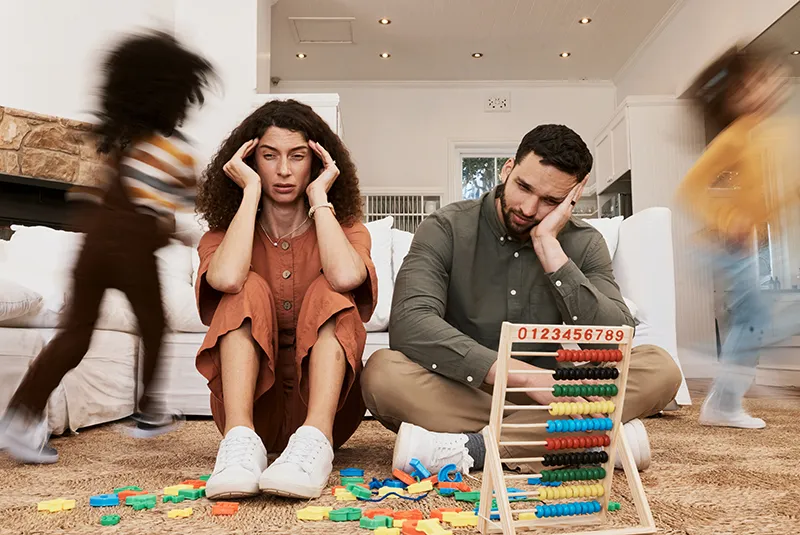

May 01, 2025
In the U.S. there are approximately 63 million parents living with children under the age of 18 years, and this doesn’t include the millions of non-parent caregivers in the role of guardian of a child.1
This significant population is facing unprecedented levels of stress. In 2023, 33% of parents reported high levels of stress in the past month, compared to 20% of other adults.1 Moreover, a staggering 48% of parents said they felt completely overwhelmed by stress most days compared to 26% of other adults.1
Despite their best efforts to create a happy and healthy environment, many parents struggle to prioritize their own well-being.
With all the demands of parenting, it's easy for parents and guardians to forget to take care of one very important person: themselves. Chronic burnout, a state of emotional, mental, and physical exhaustion, is a common experience for many caregivers, including those in a parenting role.
Recognizing the signs of chronic burnout
Chronic burnout can feel different for different people, but some common signs include:
- Feeling overwhelmed, anxious, or stressed
- Difficulty sleeping or changes in appetite
- Loss of interest in activities that were once enjoyed
- Feeling irritable, short-tempered, or restless
- Physical symptoms like headaches, body aches, or muscle tension
- Difficulty concentrating or making decisions
- Feeling hopeless, helpless, or disconnected from others
Ignoring your mental well-being can have long-term consequences, not just for parents, but for their children as well.
The impact of parental mental health and well-being on children
Parents play a significant role in their child's emotional well-being and development. When parents are struggling with their mental well-being, it can affect their relationship with their child and overall well-being.1 Children may:
- Experience increased stress and anxiety
- Have trouble regulating their emotions, leading to mood swings or behavioral issues
- Struggle with self-esteem and confidence
- Have difficulty forming healthy relationships with others
On the other hand, when parents prioritize their mental well-being, they can have a profoundly positive impact on their child's life.
Resources to help prioritize mental health and well-being
We understand the challenges that comes with parenting and we’re here to support those in that journey. That's why we offer a range of resources and tools to help members and everyone in the community take care of themselves and their families, including:
- Our Your Mental Health Matters webpage has articles on self-care and mental well-being, including one on parental mental health, that offers practical tips for prioritizing mental health and well-being.
- The community specialists at our Florida Blue Centers, who can answer questions, help find a doctor or resources in your community whether you are a Florida Blue member or not. Our centers also offer webinars and classes on topics like mental well-being, as well as caregiver support, at no extra cost. Visit your local center or call 1-877-352-5830, or learn more at FloridaBlue.com/Center.
Sources:
1https://www.hhs.gov/sites/default/files/parents-under-pressure.pdf